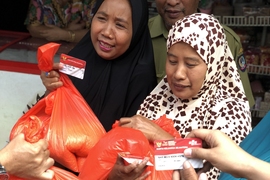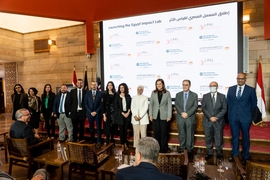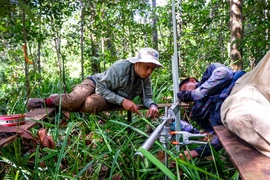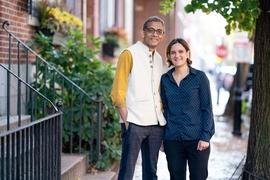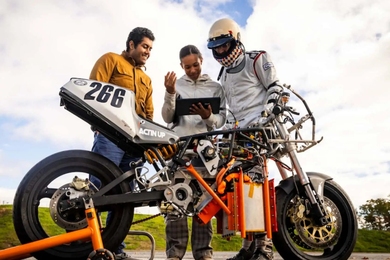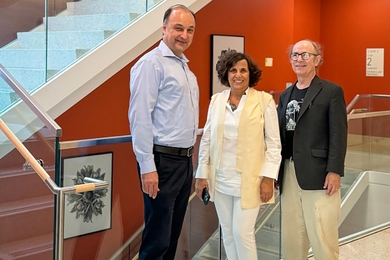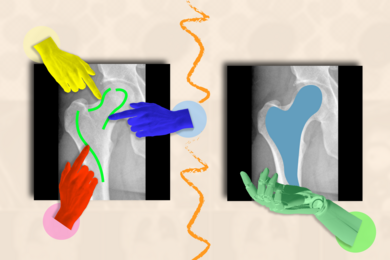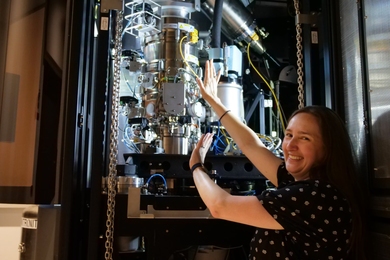MIT's Abdul Latif Jameel Poverty Action Lab (J-PAL) is launching the Clean Air and Water Labs, with support from Community Jameel, to generate evidence-based solutions aimed at increasing access to clean air and water.
Led by J-PAL’s Africa, Middle East and North Africa (MENA), and South Asia regional offices, the labs will partner with government agencies to bring together researchers and policymakers in areas where impactful clean air and water solutions are most urgently needed.
Together, the labs aim to improve clean air and water access by informing the scaling of evidence-based policies and decisions of city, state, and national governments that serve nearly 260 million people combined.
The Clean Air and Water Labs expand the work of J-PAL’s King Climate Action Initiative, building on the foundational support of King Philanthropies, which significantly expanded J-PAL’s work at the nexus of climate change and poverty alleviation worldwide.
Air pollution, water scarcity and the need for evidence
Africa, MENA, and South Asia are on the front lines of global air and water crises.
“There is no time to waste investing in solutions that do not achieve their desired effects,” says Iqbal Dhaliwal, global executive director of J-PAL. “By co-generating rigorous real-world evidence with researchers, policymakers can have the information they need to dedicate resources to scaling up solutions that have been shown to be effective.”
In India, about 75 percent of households did not have drinking water on premises in 2018. In MENA, nearly 90 percent of children live in areas facing high or extreme water stress. Across Africa, almost 400 million people lack access to safe drinking water.
Simultaneously, air pollution is one of the greatest threats to human health globally. In India, extraordinary levels of air pollution are shortening the average life expectancy by five years. In Africa, rising indoor and ambient air pollution contributed to 1.1 million premature deaths in 2019.
There is increasing urgency to find high-impact and cost-effective solutions to the worsening threats to human health and resources caused by climate change. However, data and evidence on potential solutions are limited.
Fostering collaboration to generate policy-relevant evidence
The Clean Air and Water Labs will foster deep collaboration between government stakeholders, J-PAL regional offices, and researchers in the J-PAL network.
Through the labs, J-PAL will work with policymakers to:
- co-diagnose the most pressing air and water challenges and opportunities for policy innovation;
- expand policymakers’ access to and use of high-quality air and water data;
- co-design potential solutions informed by existing evidence;
- co-generate evidence on promising solutions through rigorous evaluation, leveraging existing and new data sources; and
- support scaling of air and water policies and programs that are found to be effective through evaluation.
A research and scaling fund for each lab will prioritize resources for co-generated pilot studies, randomized evaluations, and scaling projects.
The labs will also collaborate with C40 Cities, a global network of mayors of the world’s leading cities that are united in action to confront the climate crisis, to share policy-relevant evidence and identify opportunities for potential new connections and research opportunities within India and across Africa.
This model aims to strengthen the use of evidence in decision-making to ensure solutions are highly effective and to guide research to answer policymakers' most urgent questions. J-PAL Africa, MENA, and South Asia’s strong on-the-ground presence will further bridge research and policy work by anchoring activities within local contexts.
“Communities across the world continue to face challenges in accessing clean air and water, a threat to human safety that has only been exacerbated by the climate crisis, along with rising temperatures and other hazards,” says George Richards, director of Community Jameel. “Through our collaboration with J-PAL and C40 in creating climate policy labs embedded in city, state, and national governments in Africa and South Asia, we are committed to innovative and science-based approaches that can help hundreds of millions of people enjoy healthier lives.”
J-PAL Africa, MENA, and South Asia will formally launch Clean Air and Water Labs with government partners over the coming months. J-PAL is housed in the MIT Department of Economics, within the School of Humanities, Arts, and Social Sciences.
.png?itok=N2t1alMQ)
